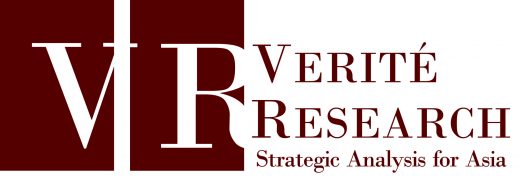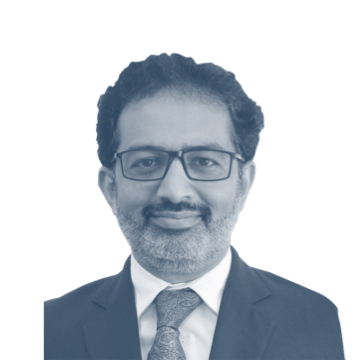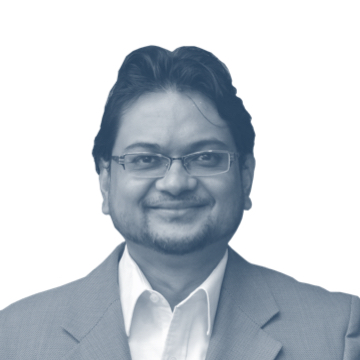Think tanks act as brokers of policy knowledge, centers of research, and incubators of new ideas. As brokers, they channel knowledge between scholars, policymakers, and civil society. As applied researchers, they convert multidisciplinary theory and empirics into insights and recommendations packaged to inform and meet decision-makers’ needs. As innovators, they expand the policy world’s perspectives and possibilities — for example, showing the power of entrepreneurial solutions. At their best, think tanks provide information that is credible, relevant, and easily understood.
In young democracies and emerging markets, think tanks can play a central role as reform leaders. They catalyze change by raising awareness of key economic issues, initiating discussion, and showing policymakers a way forward. Their expertise and leadership can strengthen and mobilize civil society.
In particular, economic research institutes have established themselves as respected advisors on policy frameworks of market economies. Economic institutes explain the benefits and functioning of market systems, publicize the barriers to open markets, and chart a direction for market-oriented reforms. At times, think tanks are also among the only sources of reliable economic data. In places where governments dominate economic policymaking through a closed process, think tanks enable less centralized decision making by widening access to data and information.
In envisioning reform, think tanks have powerful tools of institutional analysis. Analyzing the “rules of the game” and the incentives that shape economic behavior, they can identify issues affecting long-term development, design alternatives, and develop positive governance frameworks. Instead of treating policy symptoms, think tanks uncover the underlying causes of problems to recommend reforms that can work.
CIPE has partnered with a diverse cohort of think tanks over the years. The institutes featured in this guide provide examples of the numerous roles think tanks can play in addressing needs for objective analysis and creative solutions.
Frequent Roles Played by Think Tanks
 Provide a place where ideas can be developed freely & independently
Provide a place where ideas can be developed freely & independently Raise awareness of important issues
Raise awareness of important issues Provide alternative policy solutions, supported by evidence
Provide alternative policy solutions, supported by evidence Inform and educate policymakers, the public, business, & civil society
Inform and educate policymakers, the public, business, & civil society Encourage public debate and facilitate exchanges of ideas
Encourage public debate and facilitate exchanges of ideas Monitor and evaluate effects of policies and government programs
Monitor and evaluate effects of policies and government programs
An Interview with Ali Salman
-
In what ways are new think tanks similar to startups?
New think tanks and startups share the need to mobilize resources and propel a vision in the face of great uncertainty. When launching a think tank, one takes great risks to promote a set of ideas to potential funders, much like when an entrepreneur pitches a business plan to venture capitalists for seed money. In Asian and other societies that lack a charitable culture for think tanks, an entrepreneurial leader is even more crucial for a think tank to succeed.
-
How is running a think tank similar to operating a business?
As with running a business, managing a think tank requires professionalism, such as the specialization of staff roles. However, while businesses can point to profits, a think tank’s measure of success is much more qualitative. Think tanks are looking at cultural changes, public education, or policy influence as indicators of success.
-
How should a think tank identify its key product: a research agenda?
The research agenda must be crafted so that it is relevant to the political environment in which the think tank exists. Think tank staff should consult with local stakeholders, such as political parties, academics, and journalists, to ensure the research agenda’s relevance. By engaging with stakeholders, think tank staff will maximize the relevance of its research and eventual publications.
-
How can think tanks measure success, especially in their first few years?
In the initial years of a think tank, outreach capacity can serve as one indicator of success. The greater the outreach capacity, the more likely one is to educate and influence stakeholders. Other measures of success include building policy communities and fostering dialogue. Though challenging to achieve, a change in legislation would be the superb validation of a think tank’s policy impact.
-
What is the value of creating a community of like-minded policy researchers?
Creating a community of like-minded researchers helps foster the germination and cross-fertilization of ideas. In a resource-constrained environment, having a network of researchers and scholars working on similar issues in different countries is crucial. Such work need not necessarily involve a lot of labor. For example, my participation in the Islam Liberty Network involves just 1.5 full-time equivalent persons.
-
How can think tanks cooperate with the private sector?
Think tanks working on economic policy issues will find it especially valuable to build strong relationships with the private sector — including business associations and chambers of commerce. Business and trade groups have a lot of power when it comes to influencing the government policy, but are often lacking in research capabilities and skills. This is when a think tank’s research and analysis can contribute to forging meaningful partnerships with the private sector.
Ali Salman, CEO, Institute for Democracy and Economic Affairs (IDEAS), Malaysia; Founder, Policy Research Institute of Market Economy (PRIME), Pakistan; CEO, Islam and Liberty Network.

An Interview with Robin Sitoula
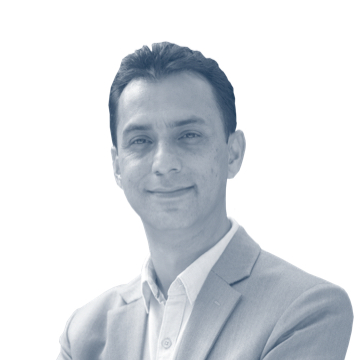
-
Why was Samriddhi Foundation established?
Samriddhi was founded in 2006 as an economic policy institute. Coming on the heels of a civil war and the reestablishment of democracy, many Nepalese activists were focused on civil and political issues. However, people did not talk about economic rights. The founders believed in addressing sorely needed economic growth and created Samriddhi to focus on Nepal’s economy. Samriddhi means “prosperity” and the founders wanted the think tank to be an advocate for prosperity.
Samriddhi’s message was timely. Nepal’s economy was unstable; there were a lot of labor strikes, and many workers were emigrating. While the mainstream economic development discourse centered around programs to eradicate poverty, Samriddhi was advancing prosperity at a time when “entrepreneurship,” “profits,” and “markets” were considered negative words in Nepal.
-
How has the organization evolved since? What are some of Samriddhi’s current areas of work?
Samriddhi’s founding mission was to create a free and prosperous Nepal. That has not changed. However, Samriddhi’s goals have evolved over time to reflect changing public needs and demands. Initially, Samriddhi aimed to shine a positive light on concepts such as markets, profit and entrepreneurship through mentoring young entrepreneurs.
Samriddhi currently focuses on enabling the market mechanism and entrepreneurship in Nepal through policy reforms. Other areas of focus include economic governance and fostering values to support a free society. The goal is to promote the entire entrepreneurship ecosystem, and to nurture policies that will catalyze entrepreneurship.
-
How do you leverage Nepali youth in your current policy work?
Youth have been an integral part of Samriddhi since its founding. The Foundation has been successful because it continues to welcome new youth through its internship programs, while retaining ties with the thousands of graduates of its programs — many of whom have created their own businesses. Many interns and former Foundation staff have also built careers in public policy. They are contributing to an intellectual environment that favors business, entrepreneurship, and democracy.
-
How did Samriddhi transition from a youth-focused organization to a public policy think tank?
Samriddhi began as a youth-oriented entrepreneurship organization. Many young participants in Samriddhi’s nascent stages then became involved in politics, public policy, and the media, creating an important alumni network that has helped grow the Foundation.
Aided by its alumni network, Samriddhi started to receive requests for policy ideas and advice from the political and business community. The Foundation has also been nimble in responding to changing demands. For example, with the help of CIPE, Samriddhi developed a Nepali economic growth agenda, as well as an Investment Board.
-
What were some of the biggest challenges for building trust with policymakers? What are some lessons learned?
In the early days of the Foundation, the biggest struggle was understanding how the policy process in Nepal works. Building relations with the various stakeholders — politicians, bureaucrats, business leaders — involved in Nepal’s economic policy process was also challenging. Large businesses, in particular, did not warm to Samriddhi’s mission as they wanted to protect their markets from entrepreneurs.
To meet these challenges, Samriddhi built its credibility by always being there to support policymakers when they needed research help or ideas. Samriddhi also remained politically neutral and independent of political parties or particular business interests by focusing on the national interest. By continuing to provide policy-relevant insights, Samriddhi has been able to build a reputation for delivering timely and useful advice.
-
What advice would you give other civil society or youth-focused organizations interested in transitioning to public policy?
Building a think tank is challenging and requires a lot of patience and having a good team to see through these challenges is absolutely essential. Staff should believe in the organization’s mission, and the think tank should have a clear and simple mission. While the think tank should respond to the demands and needs of its audience, it must maintain independence and be seen as a credible source. Finally, it is important to have a good board of directors.
Robin Sitoula, Co-founder and Executive Director, Samriddhi Foundation, Nepal
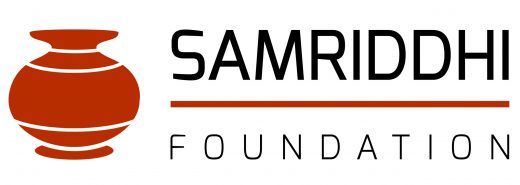
An Interview with Nishan de Mel
-
Can you describe the motivation behind the founding of Verité?
Verité was founded to address the closing of democratic space during a pivotal period in Sri Lanka’s history. While 2009 saw the end of the 26-year civil war in Sri Lanka, the brutal military defeat of the Tamil Tigers also presaged a new era where the government gained license from the populace to pare democratic norms and institutions. As the government began to dominate social and political narratives, charisma and power, rather than information and data, increasingly emerged as the foundations of truth. Verité — which is the French word for truth — was founded to fill Sri Lanka’s need for accurate information and data.
-
What are some key areas of focus for Verité?
Verité works in four major areas: economics, law, politics, and media. These four areas are interconnected. For example, discussing the media requires an understanding of economics, law and politics. Assessing the media is quite fundamental because it is a source of understanding varied perspectives on politics in Sri Lanka. Discussions in English, Tamil, and Sinhalese are quite different from one another in Sri Lanka.
-
What is the difference between the “think tank” and “do tank” parts of Verité?
Think tanks work on a spectrum that is bounded on one end by research (discovery), and the other end by deployment (solutions). In the middle lies the design (development) space. Think tanks can serve all three areas, but universities tend to have a comparative advantage in the discovery space, and to some extent in the design space. Think tanks have a comparative advantage in the deployment space, with a distinct ability to influence the design of policy as well. One analogy that helps to paint the distinction is that of the physicist and engineer. While the physicist most often works on discovery, the engineer is most often involved in proposing solutions.
Verité combines both research and consulting services. On a spectrum ranging from discovery to solution, Verité works more towards the solutions.
-
How does Verité work to provide solutions?
In practical terms, this means that Verité leverages its access to the conversation, instead of being reliant on access to power. This is important as think tanks have traditionally depended on access to political power. In a country such as Sri Lanka, where political power is not stable and constant, the way to build influence is through conversation-building with the public. The ability to inform and influence the conversation matters more in day-to-day life as elections generate accountability only once every six years. As such, presenting research in a way that builds public understanding and public conversation is a critical element of success.
-
How does Verité engage with various actors, such as the media, policymakers, or the private sector?
Verité often begins to influence the conversation with short (3-page) documents or articles produced for social media and the press. These initial writings will sometimes pique the interest of others, who ask Verité for more detailed analyses. In the end, what started as a few media posts resulted in Verité helping to draft legislation. For example, Verité helped design Sri Lanka’s maternity leave scheme, whereby the government contributes 50% to maternity leave funds to deter employers from a bias against hiring women of childbearing age.
Nishan de Mel, Executive Director, Verité Research, Sri Lanka
